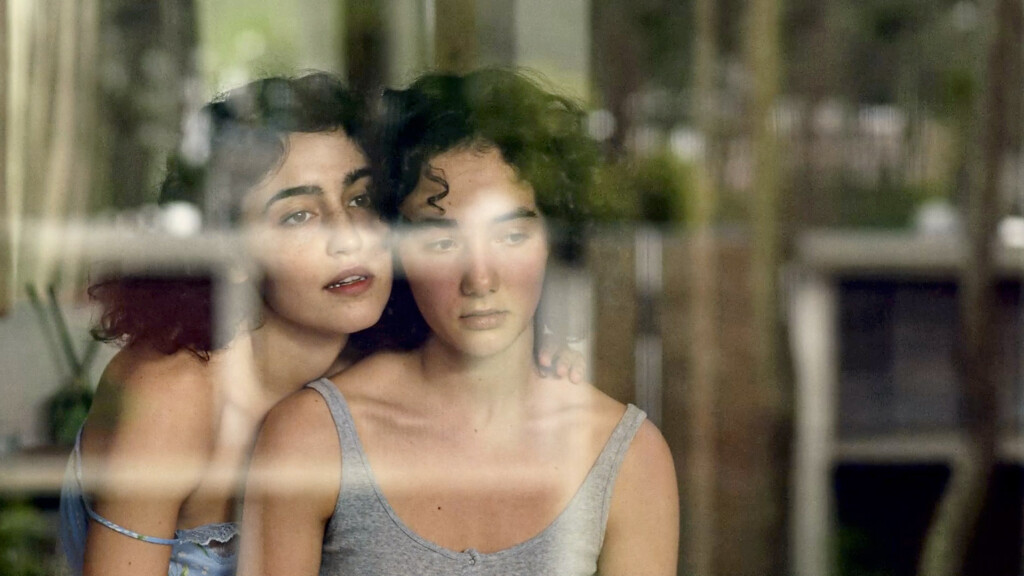
A film by João Canijo
With Nuno Lopes, Filipa Areosa, Leonor Silveira, Rafael Morais, Lia Carvalho
Five women run an old hotel. Guests arrive over the course of a weekend and are drawn into a web of constant conflict. Viver Mal is the reverse shot of the Berlinale competition film Mal Viver, revealing everything that floats in the depth of field of this film.
This counterpart of the film in competition (Viver Mal and Mal Viver are part of a unique project) does not have the same power that the first experience gives us. Certainly, we find the sense of framing, the dialectic around the field and the off-camera, and a worked photography (for a less polished staging that is), but the effect of contrast, on this backdrop (or this scenery depending on whether we discover one or the other of the two parts first) does not necessarily produce what we could have expected. Mal Viver adopted a serious tone on a single central subject, serious, detoured by dint of ellipses, small touches, at random dialogues and glances bursting into an ocean of unspoken words. In the end, it allowed itself few jokes and marked by its intensity and timelessness. The cries and whispers are invited without ever translating a vulgarity or an ease, the appearances impose on the contrary a dull violence, a permanent blindness. Viver mal, on the other hand, does not propose to focus on the life of the permanent family, this family marked by its past, its internal dramas that have left infinite wounds beyond the traces, but on those who are passing through this hotel, and who also bring their desolation, their problems. The tone, voluntarily, becomes lighter: if a theater is played there also in each room, in each corner of the hotel, if it generates similarly various cries and whispers, we leave the great timeless tragedy, for the tv novella. The multiplication of problems (and no longer the intensification of an original problem) certainly makes us smile – everything suddenly seems to be a regular and ineluctable show, with protagonists locked in their scores, and for the most part, acting as rather ridiculous divas – but two components that made the whole power of the first part disappear with it. The first one, in the background, was the half-psychological, half-psychiatric, half-mythological dimension of the tragedy. Since in this second part, the original pattern is no longer reproduced within the family, but from one family to another, the spectator sees it more as a windfall effect, an effect of the scriptwriter, than as an in-depth subject deconstructed and approached with radicalism (à la Bergman). The second, on the formal level this time, is the non-bijective character of the mirror effect. As much as Mal Viver suggested that the evil of the family could not be solved because of an incommunicability intrinsically linked to the absence of intimacy, to the permanent blurring of the lines by this recurrent merry-go-round around the life of the hotel itself, these omnipresent visitors, at the same time spectators and actors of the drama that has been or is being created, as much as Viver Mal does not manage to form a whole that can justify itself and refer with force to the first part. The elliptical effect of the first part, when it seemed to us that
